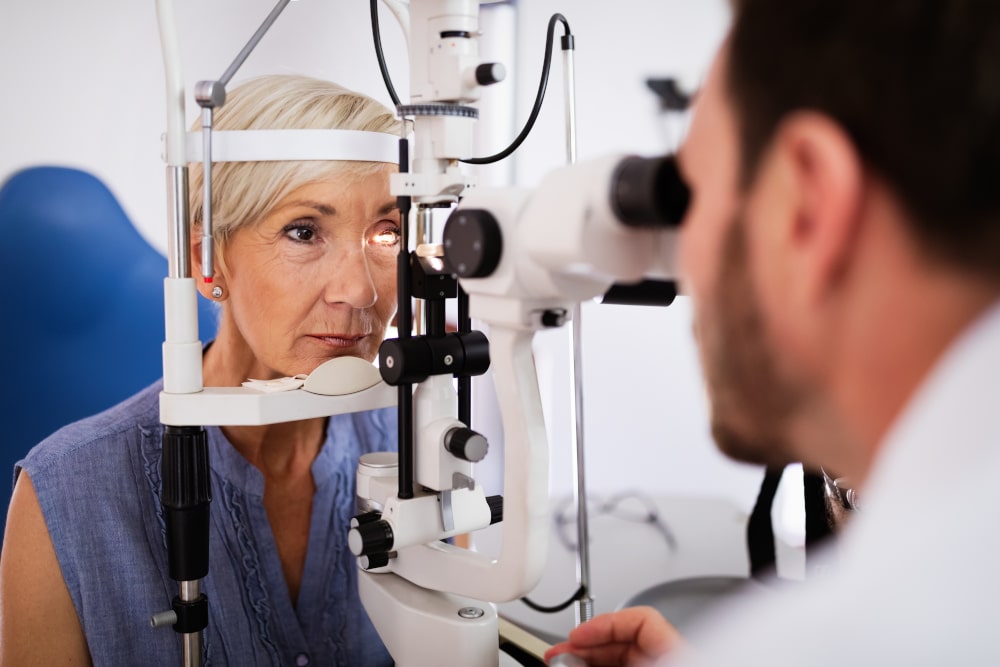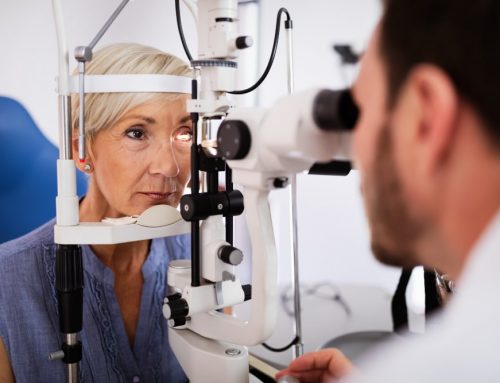
Going on Medicare for the first time, you’re probably wondering the same thing.
Medicare only provides coverage for medically necessary healthcare services like cataracts, glaucoma, or an injury to your eyes, ears, or teeth. Routine dental, vision, and hearing procedures are not considered medically necessary and, therefore, are not covered. This includes regular dental work, exams, eye tests, hearing aids, and glasses. Coverage like Original Medicare, Medicare Advantage, and Medicare Supplements determine what level of additional benefits you may qualify for.
Today we will talk about what options you have to get these services covered.
Keep reading to learn more.
Medically Necessary VS. Routine
Just like most insurance, Medicare only provides coverage for medically necessary procedures.
This is the same for dental, vision, and hearing coverage.
Medicare will ask if services are needed that result from injury or disease. If neither, then Medicare treats this as routine work.
What Does Medicare Cover for Dental, Vision, and Hearing?
Part A hospital insurance and Part B medical insurance are also known as Original Medicare.
The following services are considered medically necessary and are covered:
- A hearing exam is ordered by a doctor to determine if medical treatment is necessary
- An annual eye exam for diabetic retinopathy if you have diabetes
- A yearly glaucoma test if your provider considers you to be a high risk
- Some tests and treatments for age-related macular degeneration
What Does Medicare NOT Cover?
Original Medicare does not cover routine dental, vision, or hearing care, including the following:
- Dental exams, cleanings, x-rays, and procedures
- Hearing exams, hearing aids, and fittings for hearing aids
- Eye exams, glasses, or contacts
Let’s look at an example:
Let’s say you see your eye doctor because your vision is going bad. After a few eye tests, you learn that you have cataracts in both eyes and need surgery to repair them.
Your visits as well as the surgery are covered by Medicare Part B.
Medicare Part B is outpatient medical coverage. You can read more about Part B here.
Now let’s say you go to the same eye doctor, and he says your vision is going bad. This time, however, it’s not a cataract but that you are nearsighted.
He tells you that you have the option of getting glasses or corrective laser surgery to fix your vision.
Regardless of what you decide, Medicare would not pay since eyeglasses are considered routine and laser surgery is considered voluntary.
The same for your teeth. If you need mouth surgery to repair an injury, or if you are getting a routine root canal would determine if Medicare covers the procedure.
If you have a complicated dental procedure that requires an inpatient hospital stay, Medicare Part A will cover your hospital care but not your dental care. For example, cancer of the mouth.

Dental, Vision, and Hearing on Medigap
Many people purchase Medicare Supplement Plans, also known as Medigap plans, in addition to Part A and Part B to help minimize their out-of-pocket expenses on Medicare.
We talked about Medicare Supplement Plans in a different post, which you can read here.
Supplement Plans do not include routine dental, vision, and hearing coverage.
Remember, Supplements only pay a remainder of what Medicare does not pay.
If Medicare does not cover a certain procedure, neither would the Supplement.
Some insurance companies may offer additional policies that cover dental, vision, and hearing (DVH).
In addition to stand-alone DVH coverage, some companies offer discount programs to help lower the out-of-pocket for routine DVH services.
We will talk about the difference between discount plans and traditional DVH coverage later in this article.
We always recommend you ask your broker about these programs.
If you do not have an agent or broker you’re working with, you can learn how to find one here.
Dental, Vision, and Hearing on Medicare Advantage
Medicare Advantage Plans, also known as Part C of Medicare, are plans sold by Medicare-approved private insurance companies to cover all your Part A and Part B services.
Advantage Plans are another type of alternative coverage that people will get to help minimize their out-of-pocket expenses in lieu of going with Medicare.
We talked about Medicare Advantage Plans in another post, here.
Many Advantage Plans include dental, vision, and hearing coverage.
Whether dental, vision, and hearing are offered, or how well those services are covered, will vary from one Advantage Plan to the next.
For example, an Advantage Plan may cover routine dental exams and cleanings but not more extensive dental services, such as root canals or dental implants.
It is important to note that it is not always worth having an Advantage Plan just to have dental, vision, and hearing coverage.
Choose a plan that minimizes your out-of-pocket medical expenses, first, then focus on additional benefits like Dental, Vision, and hearing.
Make sure to ask your broker which plan offers the best benefits.
You can purchase additional standalone plans that provide dental, vision, and hearing coverage.
Keep reading to learn more.
Standalone Dental, Vision, and Hearing Plans
There are standalone plans that offer dental, vision, and hearing benefits. They are separate insurance policies that you can buy in addition to any other coverage you may have.
The benefit of this type of coverage is that you can have a plan that is specifically tailored to meet your needs.
You may want a plan that only covers dental, or if you don’t have any teeth, a plan that only covers vision or hearing. Maybe a standalone plan that provides coverage for a combination of all three.
Unlike having a Medicare Advantage Plan, a stand-alone DVH policy allows you to have more control over your benefits.
These plans offer benefits for exams, eyeglasses, contacts, and hearing aids. In addition to these items, most major services are covered.
If you like your Advantage Plan for its health coverage but hate the dental benefits, you may consider getting a separate plan. It provides benefits in addition to any dental you may already have.
Just like most insurance, DVH plans usually have a network. If you receive dental, vision, or hearing services from participating providers or groups, you’ll usually have better pricing.
Most DVH plans do not require you to use providers in their network, but if you do, you’ll have better coverage.
Choosing a Plan
When choosing a plan, you’ll want to evaluate your needs and work with an agent to get you coverage for things that are most important to you.
These plans often have deductibles and cover you for a specific dollar amount per year that you choose. The higher the coverage, the more the plan costs.
To pick a plan, you’ll have the choice from the following options:
- Deductible
- Benefit Amount
- Coinsurance level
Once you’ve determined the coverage you want, your agent will generate a quote.
The best thing you can do is contact an independent agent who will know which companies have the best plans and will offer you the best coverage with the least restrictions at the lowest rates.
If you want a quote for a plan in your area, you can do so here.
Don’t worry, it’s easier than you think.
Dental Discount Programs
Unlike stand-alone DVH policies, dental discount programs are not insurance but they do offer limited coverage for services.
As we mentioned above, most dental insurance plans have a network, and then cover a percentage of the bill.
Discount programs offer a discount for using an in-network provider and that’s it.
Since there is no actual “insurance” coverage, just preferred provider pricing, the cost for these programs is a lot less than a DVH insurance policy.
These programs are a good alternative to the more expensive dental policies mentioned above. If your eyes, ears, and teeth are in good condition but you still want some kind of protection you may want to consider looking into these.
If you want to compare different Dental Discount Programs, you can do so here.
Summary
Unfortunately, because dental, vision, and hearing services are rarely considered medically necessary, they are not covered by Medicare.
Some Medicare Supplement Plans sometimes include a discount program for dental, vision, and hearing services, but it is not insurance. You can also use the link above to compare them yourself.
You should exercise caution if you are considering a Medicare Advantage Plan to ensure you are not sacrificing good medical coverage for some dental, vision, and hearing coverage.
Some cost-effective and comprehensive standalone plans cover dental, vision, and hearing services, and an independent agent can help you find the best one.
If you have any questions, use the search tool at the top of this page or on the home page.
Or, if you would like further detail on any of the topics we discussed, please fill out a contact form and submit your question.
If you prefer to speak by phone, call us at 888-209-5049.





Leave A Comment